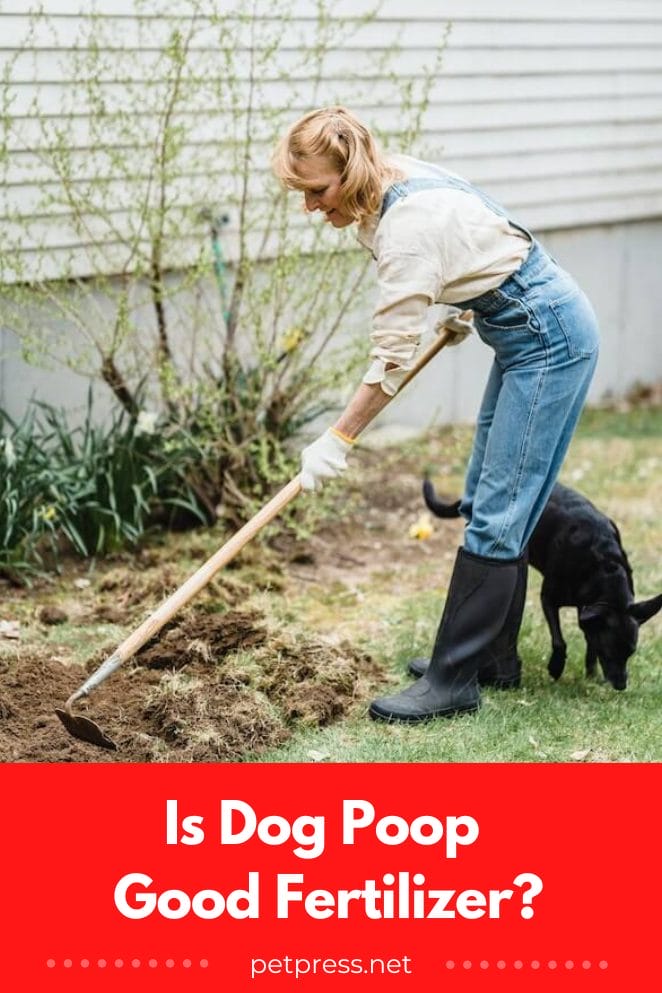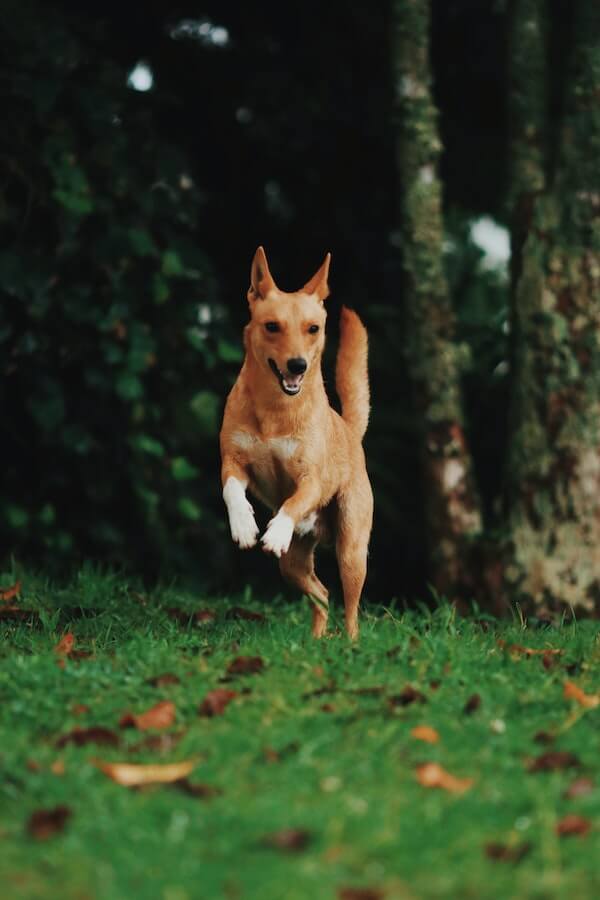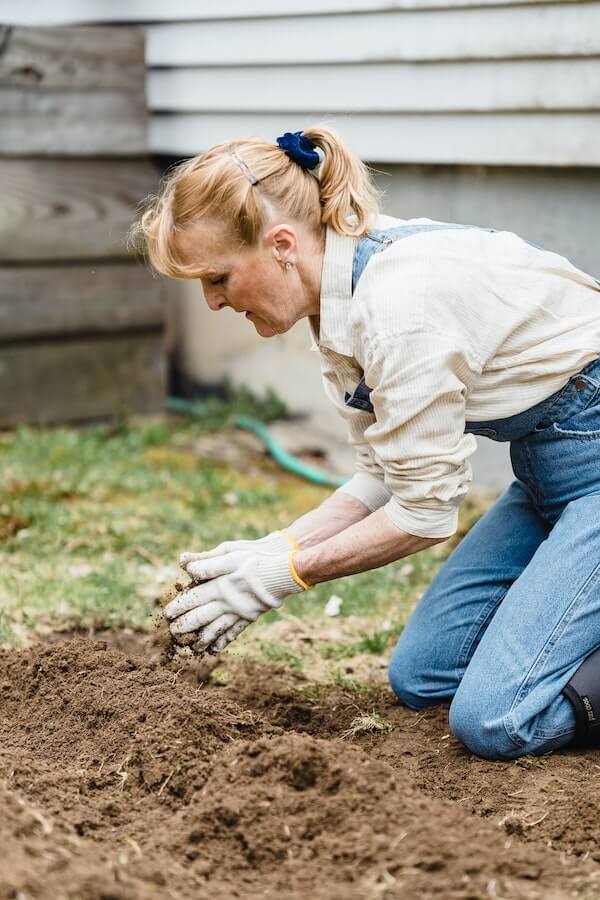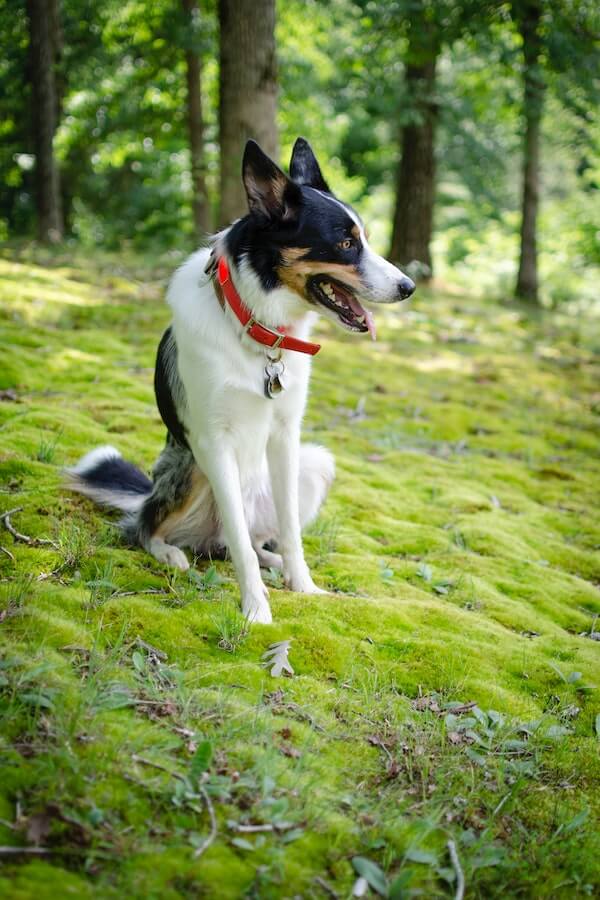
We all know that being a responsible dog owner, and picking up after our pets is important for the health of our communities, but what if it is left out? Can dog poop be a good fertilizer if left on the soil?
A lot of people believe that it is, but the truth is that pet waste should not be used as fertilizer.
In this article, we will explore why pet waste should not be used as fertilizer.
From the environmental impact of dog poop to the health risks associated with using it as fertilizer, we’ll look at all of the reasons why leaving dog waste on your lawn is a bad idea.
Is dog poop good fertilizer?

No, dog poop is not a good fertilizer for your garden.
While it might seem like a free source of nitrogen, which plants need to grow, you would be doing more harm than good by using it on your lawn or in your garden.
Here are seven reasons why using dog poop as fertilizer is a bad idea:
1. Dog Poop Contains Parasites and Bacteria:
Dog feces can contain harmful parasites and bacteria including roundworms, hookworms, salmonella, E. coli, giardia, cryptosporidium, and parvovirus.
These organisms can cause serious health problems if ingested by humans or animals. They can also contaminate food crops grown in soil with dog waste.
2. Longer Break Down Time:
Dog poop takes longer to break down than other types of manure, meaning it can clog the soil and prevent water and air from getting in.
This creates an environment that is not conducive for healthy plant growth.
3. Poisonous Plants Can Grow:
Dog poop is known to contain traces of toxic substances like antifreeze, heavy metals, pesticides, and herbicides that can be present in a dog’s diet or the environment they live in.
These substances can leach into the soil when used as fertilizer and lead to the growth of poisonous plants and weeds in your garden or lawn.
4. It is acidic:
Dog poop tends to be slightly acidic, which can cause soil acidity levels to rise and negatively impact plant growth.
It also makes the soil less hospitable for beneficial organisms such as earthworms and other beneficial insects.
5. It Can Ruin Your Soil:
Dog poop is high in nitrogen, which can be beneficial for plants as long as it is properly processed and balanced with other nutrients like phosphorus and potassium.
However, if not handled carefully, dog waste can disrupt the delicate balance of nutrients already present in your soil, rendering it unusable for plant growth.
6. It Smells Really Bad:
Dog waste has an unpleasant odor that will linger even after you have disposed of it properly.
Not only will this make your garden less enjoyable to be around but it could also attract more pests looking for food or shelter.
7. It’s Not Environmentally Friendly:
Dog poop is not biodegradable and takes a very long time to decompose naturally.
This means it can stay in landfills for an extended period of time and may even contaminate groundwater if not disposed of properly.
At the end of the day, using dog waste as fertilizer is a bad idea for both you and your garden.
If you are looking for an organic fertilizer that won’t have any negative impacts on your yard or environment, consider using compost instead!
Dog poop vs. Cow Manure

Pet waste is a whole different story from cow manure!
While cow manure has been used as a natural fertilizer for centuries, you certainly don’t want to use pet waste in the same way. Here are five scientific reasons why:
1. Pathogen Composition:
Pet waste can contain parasites, viruses, and bacteria that can be dangerous for humans and other animals if left untreated.
These pathogens can be unsafe for dogs themselves, because some dogs tend to eat poop, and that might lead to serious health issues.
On the other hand, cow manure is less likely to cause severe health risks because most of these pathogens are killed off during the composting process.
2. Nutrient Content:
Cow manure has higher levels of nitrogen, phosphorus, and potassium, which help plants absorb nutrients better.
Pet waste, on the other hand, is not as nutrient-rich and can even contain toxins that can be damaging to plants if used as fertilizer.
3. Heavy Metal Composition:
Heavy metals like cadmium, lead, copper, and zinc are commonly found in pet waste because of the food they eat and the medications they may take.
These heavy metals can be harmful to plants and make them more susceptible to disease or damage their root systems.
4. Moisture retention:
Cow manure has better moisture retention capabilities than pet waste products do.
It can hold onto moisture longer due to its higher carbon content, which helps it break down faster and release nutrients into the soil quicker when used as a fertilizer.
Pet waste, on the other hand, is not as good at retaining moisture and can cause plants to dry out faster if used as a fertilizer.
5. Microbial Composition:
Cow manure contains beneficial microbes that help break down organic matter which in turn helps feed plants.
These same microbes are not present in pet waste products and can lead to an imbalance in soil nutrients, making it harder for plants to absorb the vital nutrients they need to thrive.
So there you have it! While cow manure has been used for centuries to fertilize crops and gardens, pet waste should be kept away from your flower beds or vegetable patch.
Conclusion

To sum things up, it’s safe to say that dog poop is definitely not a good fertilizer. It can have negative effects on the environment, as well as on our health.
So leave your pup’s droppings where they belong – in the bin! After all, nobody wants to deal with nasty surprises in their garden.
And let’s face it: Fertilizing with poo just isn’t worth it!
- 7 Dog Breeds With Webbed Feet And Why Do They Have Them - July 19, 2023
- 10 Best Fish For Small Tanks That Make Perfect Pets - July 18, 2023
- How to Breed Guinea Pigs: A Detailed Guide - July 17, 2023


GIPHY App Key not set. Please check settings